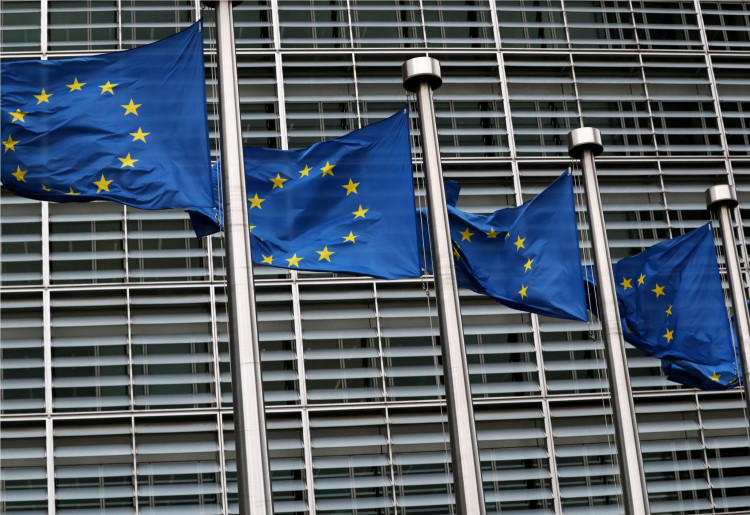Accelerated economic growth is forecast this year and in 2022 for the member states of both the European Union and the eurozone, which remain beset by persistent COVID-19 challenges.
The 27 EU member states are expected to collectively boost the bloc's gross domestic product by 3.7% in 2021 and 3.9% in 2022, according to the European Commission's winter economic forecast issued Thursday. The same forecast projects GDP growth among the 19 member states of the eurozone that use the euro as their currency hitting 3.8% in both 2021 and 2022.
The forecast sees the EU and eurozone economies clawing back to their pre-coronavirus growth levels of output earlier than anticipated. This recovery will largely be due to the stronger than expected growth momentum forecast for the second half of 2021 and 2022.
On the other hand, the EU and eurozone economies are seen shrinking in the first quarter of this year after strong growth in the third quarter of 2020. This boost was negated in the fourth quarter as a second wave of the raging COVID-19 pandemic forced many governments to reinstate containment measures that appreciably slowed down growth.
The forecast sees economic growth likely resuming this spring and accelerating in the summer as vaccination programs gather steam and containment measures gradually ease.
Vaccinations will eventually help growth pick up, "still moderately in the second quarter, but more vigorously in the third, led by private consumption with additional support from global trade."
The forecast said the pandemic's economic impact remains uneven across EU and eurozone member states, and the speed of the recovery is expected to vary significantly from state to state. It noted some EU economies contracted more than others during the pandemic.
"Today's forecast provides real hope at a time of great uncertainty for us all," said Valdis Dombrovskis, executive vice-president for an Economy that Works for People, who is responsible for the EU's economic and financial affairs.
"The solid expected pick-up of growth in the second half of this year shows very clearly that we are turning the corner in overcoming this crisis."
Dombrovskis said a strong European response will be key to tackling issues such as job losses, a weaker corporate sector and rising economic and social inequalities such as poverty exacerbated by the pandemic. He said the EU still has a great deal to do to contain the wider socio-economic fallout.
"Our recovery package will go a long way to supporting the recovery, backed up by vaccination roll-out and a likely upswing in global demand," he noted.
Paolo Gentiloni, European Commissioner for Economy, asserts "there is, at last, light at the end of the tunnel. As increasing numbers are vaccinated over the coming months, an easing of containment measures should allow for a strengthening rebound over the spring and summer. The EU economy should return to pre-pandemic GDP levels in 2022, earlier than previously expected."
He did, however, admit the output lost in 2020 won't be recouped quickly, or at the same pace across the EU. He said the impact of "Next Generation EU" (the bloc's recovery instrument) should provide a strong boost to the hardest-hit economies over the coming years."






